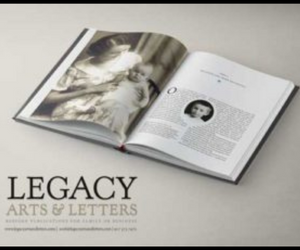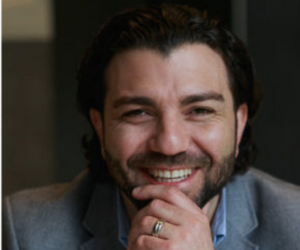Why Family Businesses Break Down — and What to Do about It
Adrienne Penta has a disturbing statistic for us, and nested inside it is yet another disturbing statistic. As Senior Vice President for Private Banking with Brown Brothers Harriman, Penta knows that:
- 70% of wealth transfers to the second generation fail.
- 97% of the reason that family businesses fail is for reasons in the control of the family.
“You might think that failures come about because of poor legal advice or poor tax advice or unfortunate investments,” she begins, and then adds, “but our research shows that the biggest causes are inadequately prepared heirs, and a breakdown in trust and communication.”
Since Penta is part of the Brown Brothers Harriman Center for Women & Wealth, she spends a lot of time with her clients helping them with the communication strategies that can help keep the family together. Her experience makes her conclude that, “A family business needs communication planning as much as it needs investment planning.”
She’s certain that it’s just as important for families to talk about and teach values as it is to talk about investments or tax planning or any of the more traditional financial issues that you would expect financial institutions to address. In her view, we can’t leave communications about money to chance.
WHEN DO YOU TELL THEM?
“Discussions should start early and happen often,” says Penta. “Start with pre-school and have talks that are appropriate for their developmental stages.”
She believes that it’s essential to start laying the foundations for being smart and responsible early on. She gives as an example something that happened when her son had just turned five.
“We gave him a $5 a week for his allowance. The first time he got this money, it was on a day when we were going shopping, and he carried the money around in his hot little hand, excited as could be.”
However, Penta remembers being concerned that he might drop the five dollars, so she delicately asked, “Can I hold this for you?” Her son shook his head no. He wanted to keep holding the money, so she let him.
However, after they had gone to several stores, Penta remembers looking at her son and asking where his five dollars was. Unfortunately, sometime during the day, he had become distracted and lost the money.
This of course meant tears and unhappiness. However, in Penta’s view, “This was a painful lesson, but it was a relatively small price to pay, and a lot easier than the same lesson would have been if he made the same mistake with a larger amount when he was older.”
“Today,” reports Penta, “He’s learned that it’s possible to lose money, and when he gets his allowance, he puts it in a safe place.”
Her son is now almost seven. The age-appropriate lessons he’s learning at this point in his development is about delayed gratification.
“The older children get, the more they understand the following idea,” she says. “You can get something that’s OK today, like a bag of chips, but if you save your allowance for a couple of weeks, you can get something much better, like a toy or an app that you really want.”
For more information about communication at every age, Penta recommends having a look at the Brown Brothers Harriman articles on talking with kids about money and responsibility.
www.bbh.com/womenandwealth
“We have a whole series of articles and videos about talking to your kids about money at every age. I particularly recommend the one on parents of kids who are in their 20s. We’ve seen that it’s hard for parents to restrain themselves from bailing the kids out.”
To contact Penta, e-mail her at: Adrienne.Penta@bbh.com . And for a world of wise advice, available free, go to: www.bbh.com/womenandwealth.
Search Articles
Latest Articles
Russia’s Unusual New Method Of Attack: Fake Bomb Threats
https://www.fairobserver.com/russian-newsrussia-news/russias-unusual-new-method-of-attack-fake-bomb-threats/ Publication – fairobserver.com
The Russian Occupation: a Ukrainian Political Prisoner’s Ordeal
https://townhall.com/columnists/mitzi-perdue/2024/04/06/the-russian-occupation-a-ukrainian-political-prisoners-ordeal-n2637446 Publication – townhall.com
“Bucha”: A Film About Torture, Rape, and Other Atrocities That Regular People Can Watch
https://foreignpress.org/journalism-resources/bucha-a-film-about-torture-rape-and-other-atrocities-that-regular-people-can-watch Publication – foreignpress.org
Brushes Against Bullets
https://www.kyivpost.com/post/30040 Publication – kyivpost.com
Subscribe to Updates
About Author

Mitzi Perdue is the widow of the poultry magnate, Frank Perdue. She’s the author of How To Make Your Family Business Last and 52 Tips to Combat Human Trafficking. Contact her at www.MitziPerdue.com
All Articles
Knowledge Services: Crucial in Today’s Knowledge Economy
Knowledge Services: Crucial in Today's Knowledge EconomyIf you’re beautifully organized, you can quickly find all your documents when you need them. However, if you’re like most people, the frustration and lost time spent trying to locate a needed document can be...
A Family Book Can Be a Priceless Investment
A Family Book Can Be a Priceless InvestmentImagine something terrible for a moment. If you lost your memory, as in Alzheimer’s, you would have lost one of the most basic factors that makes you you. Without memory, you’d have trouble making good decisions; you’d no...
The Soft Issues Are Really the Hard Issues!
The Soft Issues Are Really the Hard Issues!If you’re part of a business family and you’re also a parent of a school age child, which would be easier for you to do? Be honest! Choice A: Have the Sex Talk with your child Choice B: Have the Money Talk with your child...
Trust: How to Nurture a Key Factor in Family Success
Trust: How to Nurture a Key Factor in Family SuccessTRUST: HOW TO NURTURE A KEY INGREDIENT FOR FAMILY SUCCESS What does it take to be a successful multi-generational family business? Dennis Jaffe, PhD is one of the best people to ask. For more than 40 years, he’s...
Women’s Leadership Styles: There’s a Lot to Learn!
Women's Leadership Styles: There's a Lot to Learn!Women in family businesses face a particular set of distinct challenges when it comes to leadership style. Heather Powell, a family business coach for women and couples, has an impressive track record of dealing with a...
Why You Need a Family Legacy Mindset
Why You Need a Family Legacy MindsetWhen Vincent Valeri joined the wealth management industry in 2011, he realized there was an extraordinary gap in what most of these organizations offered and what almost all families need. The organizations, he discovered, might be...






